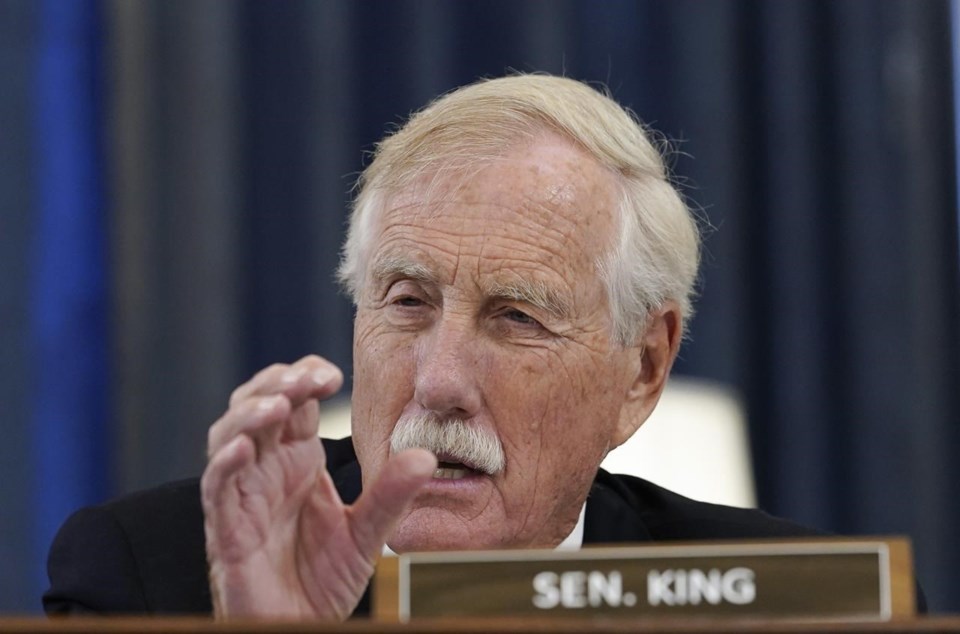PORTLAND, Maine (AP) — The U.S. would risk enabling the spread of extremism in Europe if it stopped providing support to Ukraine in its war with Russia, Maine's independent senator said Monday in the wake of meeting with Ukrainian President Volodymyr Zelenskyy.
Sens. Angus King of Maine and Jack Reed of Rhode Island, who sit on the U.S. Senate Committee on Armed Services, traveled to Kyiv last week to meet with Zelenskyy. King said he came back more certain that U.S. aid to Ukraine is vital.
Ukraine is slated to receive $44.9 billion in U.S. aid as part of the recent government spending bill. The U.S. should continue supporting Ukraine until Russian President Vladimir Putin is out of power, King said. He characterized Putin as “a dictator.”
Failure to continue supporting Ukraine would be akin to Western nations' failure to combat the rise of Germany in the 1930s, King said. He said he plans to make that case to constituents and Republican lawmakers who have voiced skepticism of continued U.S. involvement in the war.
“I get letters every now and then, people saying, ‘Why are we doing this? Ukraine’s far away. It’s not our fight.’ Well, it is our fight, because if we don’t fight it now, it will spread,” King said. “And it will become something that we can’t avoid being involved in, just as occurred in the late 1930s at the beginning of World War II.”
King met with Zelenskyy while wearing a sweatshirt depicting Maine native and Civil War hero Joshua Chamberlain. The senator said it would be a mistake to set a date on how long the U.S. should continue to support Ukraine, because that would give Putin the ability to wait out that deadline.
King said he did not think it's necessary for the U.S. to consider sending troops to Ukraine. It makes more sense to supply Ukraine with equipment, he said.
Reed, who is the chair of the armed services committee, has also said he supports the U.S. decision to keep funding Ukraine. Reed said last week that Ukraine is “fighting for the values that we cherish: freedom, democracy, a civil society, opposing autocracy and illegal and unconscionable warfare.”
Patrick Whittle, The Associated Press




